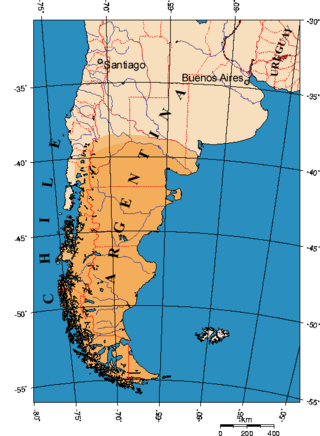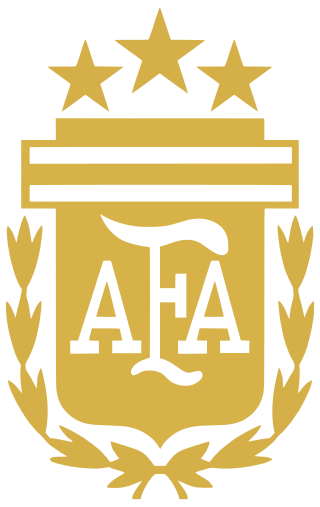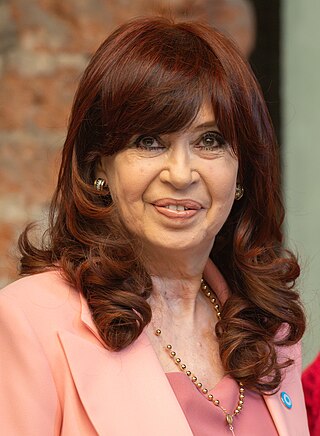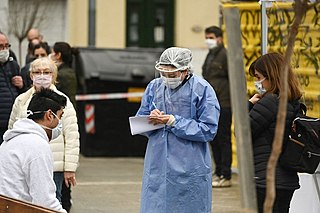External links
- (in Spanish) Argentine Primera statistics [usurped]
- (in Spanish) Player profile on the River Plate website
| Personal information | |||
|---|---|---|---|
| Full name | Juan Ignacio Antonio | ||
| Date of birth | 5 January 1988 | ||
| Place of birth | Trelew, Argentina | ||
| Height | 1.86 m (6 ft 1 in) | ||
| Position(s) | Second striker, attacking midfielder | ||
| Youth career | |||
| 2005 | C.A.I | ||
| 2006 | River Plate | ||
| Senior career* | |||
| Years | Team | Apps | (Gls) |
| 2006–2010 | River Plate | 7 | (0) |
| 2010–2011 | Brescia | 19 | (3) |
| 2010–2011 | → Ascoli (loan) | 6 | (1) |
| 2012–2014 | Sampdoria | 24 | (2) |
| 2013 | → Varese (loan) | 9 | (0) |
| 2013–2014 | → Brescia (loan) | 13 | (1) |
| 2014–2015 | Parma | 0 | (0) |
| 2014–2015 | → FeralpiSalò (loan) | 13 | (1) |
| Total | 91 | (8) | |
| International career | |||
| 2005 | Argentina U-17 | 4 | (1) |
| *Club domestic league appearances and goals | |||
Juan Ignacio Antonio (born 5 January 1988) is an Argentine former professional football who played as a forward.

South America is a continent entirely in the Western Hemisphere and mostly in the Southern Hemisphere, with a considerably smaller portion in the Northern Hemisphere. It can also be described as the southern subregion of the Americas.

Patagonia is a geographical region that encompasses the southern end of South America, governed by Argentina and Chile. The region comprises the southern section of the Andes Mountains with lakes, fjords, temperate rainforests, and glaciers in the west and deserts, tablelands, and steppes to the east. Patagonia is bounded by the Pacific Ocean on the west, the Atlantic Ocean to the east, and many bodies of water that connect them, such as the Strait of Magellan, the Beagle Channel, and the Drake Passage to the south.

The president of Argentina is both head of state and head of government of Argentina. Under the national constitution, the president is also the chief executive of the federal government and commander-in-chief of the armed forces.

Argentina is divided into twenty-three federated states called provinces and one called the autonomous city of Buenos Aires, which is the federal capital of the republic as decided by the Argentine Congress. The provinces and the capital have their own constitutions and exist under a federal system.

Buenos Aires is the capital city of Argentina, on the western shore of the Río de la Plata on South America's southeastern coast. "Buenos aires" is Spanish for "fair winds" or "good airs". Buenos Aires is classified as an Alpha global city, according to the Globalization and World Cities Research Network (GaWC) 2020 ranking.

The Argentina national football team, nicknamed La Albiceleste, represents Argentina in men's international football and is administered by the Argentine Football Association, the governing body for football in Argentina.

Alberto Ángel Fernández is an Argentine politician, lawyer, and academic who served as President of Argentina from 2019 to 2023. He was also the Chief of the Cabinet of Ministers from 2003 to 2008. His tenure as Cabinet Chief remains the longest since the post was created in 1994.

The Chamber of Deputies, officially the Honorable Chamber of Deputies of the Argentine Nation, is the lower house of the Argentine National Congress. It is made up of 257 national deputies who are elected in multi-member constituencies corresponding with the territories of the 23 provinces of Argentina by party list proportional representation. Elections to the Chamber are held every two years, so that half of its members are up in each election, making it a rare example of staggered elections used in a lower house.

Rioplatense Spanish, also known as Rioplatense Castilian, or River Plate Spanish, is a variety of Spanish originating in and around the Río de la Plata Basin, and now spoken throughout most of Argentina and Uruguay. It is the most prominent dialect to employ voseo in both speech and writing. Many features of Rioplatense are also shared with the varieties spoken in south and eastern Bolivia, and Paraguay. This dialect is influenced by Italian languages, due to the historically significant Italian immigration in the area, and therefore has several Italian loanwords and is often spoken with an intonation resembling that of the Neapolitan language of Southern Italy.

Cristina Elisabet Fernández de Kirchner, often referred to by her initials CFK, is an Argentine lawyer and politician who served as president of Argentina from 2007 to 2015 and later as vice president of Argentina from 2019 to 2023 under President Alberto Fernández, as well as the first lady of Argentina during the tenure of her husband, Néstor Kirchner, from 2003 to 2007. She was the second female president of Argentina and the first elected female president of Argentina. Ideologically, she identifies herself as a Peronist and a progressive, with her political approach called Kirchnerism.

Lionel Andrés Messi, also known as Leo Messi, is an Argentine professional footballer who plays as a forward for and captains both Major League Soccer club Inter Miami and the Argentina national team. Widely regarded as one of the greatest players of all time, Messi set numerous records for individual accolades won throughout his professional footballing career such as eight Ballon d'Or awards and eight times being named the world's best player by FIFA. He is the most decorated player in the history of professional football having won 45 team trophies, including twelve league titles, four UEFA Champions Leagues, two Copa Américas, and one FIFA World Cup. Messi holds the records for most European Golden Shoes (6), most goals for a single club, most goals (474), hat-tricks (36) and assists (192) in La Liga, most matches played (39), assists (18) and goal contributions (34) in the Copa América, most matches played (26) and goal contributions (21) in the World Cup, most international appearances (189) and international goals (112) by a South American male, and the second-most in the latter category outright. A prolific goalscorer and creative playmaker, Messi has scored over 850 senior career goals for club and country.

The United Provinces of the Río de la Plata, earlier known as the United Provinces of South America, was a name adopted in 1816 by the Congress of Tucumán for the region of South America that declared independence in 1816, with the Sovereign Congress taking place in 1813, during the Argentine War of Independence (1810–1818) that began with the May Revolution in 1810. It originally comprised rebellious territories of the former Spanish Viceroyalty of the Río de la Plata dependencies and had Buenos Aires as its capital.

Argentina, officially the Argentine Republic, is a country in the southern half of South America. Argentina covers an area of 2,780,400 km2 (1,073,500 sq mi), making it the second-largest country in South America after Brazil, the fourth-largest country in the Americas, and the eighth-largest country in the world. It shares the bulk of the Southern Cone with Chile to the west, and is also bordered by Bolivia and Paraguay to the north, Brazil to the northeast, Uruguay and the South Atlantic Ocean to the east, and the Drake Passage to the south. Argentina is a federal state subdivided into twenty-three provinces, and one autonomous city, which is the federal capital and largest city of the nation, Buenos Aires. The provinces and the capital have their own constitutions, but exist under a federal system. Argentina claims sovereignty over the Falkland Islands, South Georgia and the South Sandwich Islands, the Southern Patagonian Ice Field, and a part of Antarctica.

Argentines are the people identified with the country of Argentina. This connection may be residential, legal, historical or cultural. For most Argentines, several of these connections exist and are collectively the source of their being Argentine. In the past the National Gentilic for Citizens of Argentina was mistakenly translated as Argentinians, a term that is no longer considered accurate.

The Argentine Pila or Perro Pila Argentino is an Argentine breed of hairless dog. It was recognised by the Asociación Canina Argentina in 2007. It forms part of the large group of South American hairless breeds and types, but is distinct from other modern breeds such as the Chinese Crested, the Peruvian Hairless and the Xoloitzcuintle. It is generally dark-skinned, or light-skinned with dark spots.

Javier Gerardo Milei is an Argentine politician and economist currently serving as the president of Argentina since December 2023. Milei has taught university courses and written on various aspects of economics and politics, and also hosted radio programs on the subject. Milei's views distinguish him within Argentine politics.
The Billboard Argentina Hot 100 is the music industry standard record chart in Argentina for songs, published weekly by Billboard and Billboard Argentina magazines. It ranks the most popular songs in Argentina and is compiled by utilizing a formula blending local streaming activity on leading music services such as YouTube, Spotify and Apple Music, among others, as well as national radio airplay and plays of songs featured on a variety of Argentine TV networks. Streaming data is provided by Luminate, while radio and TV measurement is powered by BMAT/Vericast.

The COVID-19 pandemic in Argentina is part of the worldwide pandemic of coronavirus disease 2019 caused by severe acute respiratory syndrome coronavirus 2. As of 27 October 2024, a total of 10,104,733 people were confirmed to have been infected, and 130,691 people were known to have died because of the virus.

Carla Vizzotti is an Argentine physician specialized in vaccine-preventable diseases. She was the Secretary of Health Access and Vice Minister of Health in Argentina's Health Ministry, working under Minister Ginés González García, until February 2021. She served as Minister of Health from 2021 to 2023, following González García's resignation.

This article presents official statistics gathered during the COVID-19 pandemic in Argentina. The National Ministry of Health publishes official numbers every night.